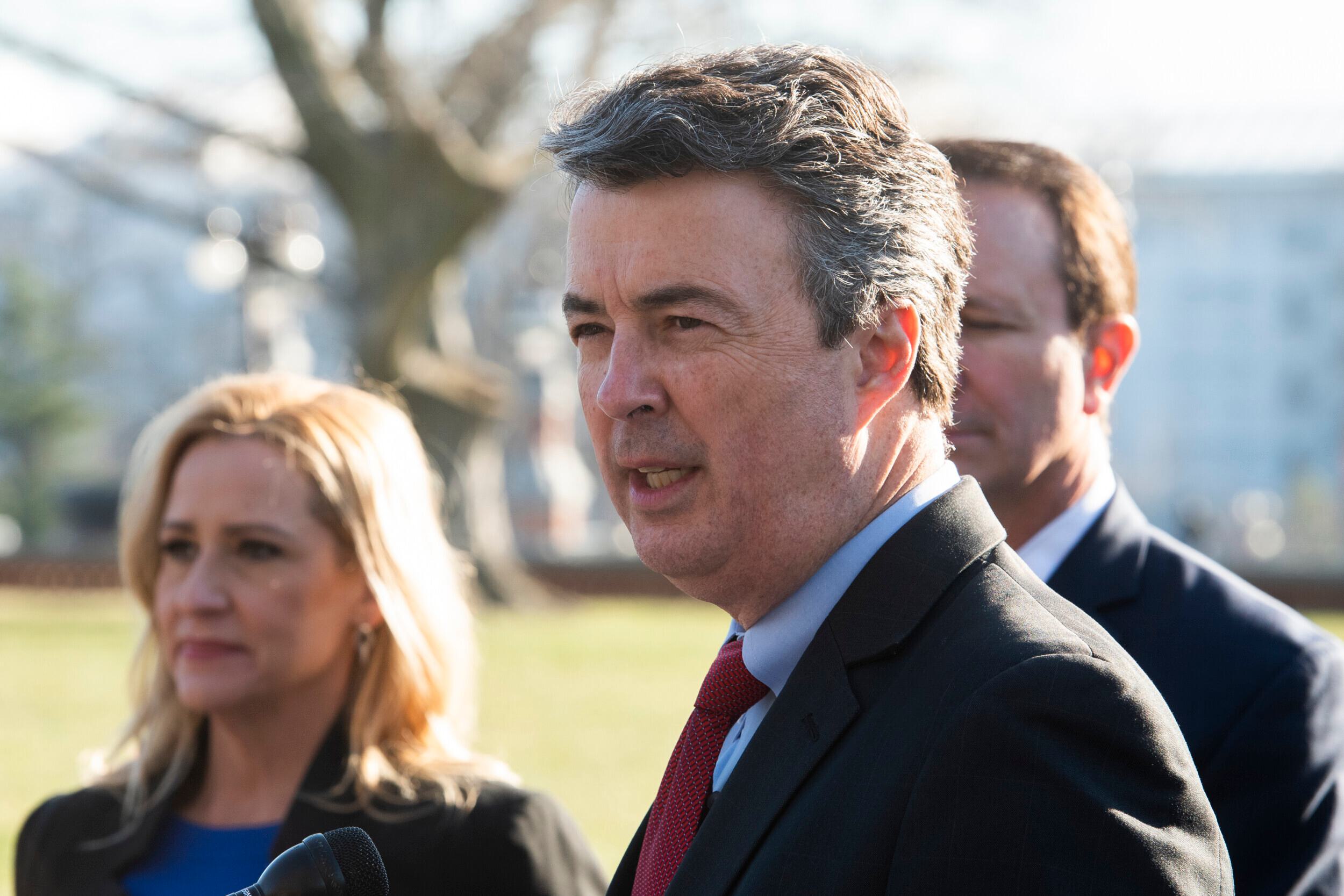Alabama Attorney General Steve Marshall published an op-ed in the Wall Street Journal on Tuesday criticizing environmental, social governance (ESG) agenda proponents who purport to defend the free market.
Marshall argued that global institutions, such as the United Nations (UN), work with an alliance of allegedly "socially responsible" financial institutions that leverage their asset holdings to advance the ESG agenda.
ESG scoring evaluates how a corporation aligns itself with social goals beyond earning a profit for its shareholders. These goals often pertain to environmental sustainability, advocacy for specific social movements and commitment to DEI.
Organizations, such as MSCI, award ESG scores to corporations supposedly based on their adherence to ESG values. Large asset management groups, like BlackRock, Vanguard, and State Street, and banks like JPMorgan and Bank of America use ESG ratings to choose where to direct capital.
Conservative critics have called ESG investing a "wokeness report card" and compared it to China's social credit score system.
Despite pushback from pro-ESG businesses, such as Birmingham-based Regions Financial, the Alabama Senate passed legislation this month restricting the state from joining contracts with companies that use political metrics to discriminate in business practices and prohibits public pension funds, like those managed by the Retirement Systems of Alabama (RSA), from making investments using ESG criterion.
Marshall's op-ed follows a testimony he and Utah Attorney General Sean Reyes (R) gave on May 10 before the U.S. House Oversight Committee regarding ESG and its threat to American investors.
During the hearing, U.S. Rep. Jamie Raskin (D-Md.) accused ESG critics, such as Marshall, of "assaulting the free market" by prohibiting it from "responding to the climate crisis." Other Democrats furthered this rhetoric.
"The free market has resisted onerous ESG mandates," Marshall wrote. "That's why sectorwide financial alliances have emerged to restrict the market's functioning and stymie consumer choice."
"A company's affinity for ESG ideology is its prerogative," he continued. "Likewise, it is the consumer's choice to reward a company's social messages with continued business. Such corporate stances are often nothing more than virtue signaling. This can often be a costly decision, as Anheuser-Busch is learning in the wake of Bud Light's partnership with transgender activist Dylan Mulvaney."
Marshall clarified that ESG investing differs from companies making choices in the marketplace due to consumer demand or interest from shareholders. He accused the financial institutions pushing ESG of colluding to "choke out certain disfavored companies and industries by limiting their access to capital and then pointing to this manufacturers obstruction as evidence that these firms are a bad investment."
"Consumer choice and businesses' access to funding are central to our free-market system," Marshall wrote. "Because ESG dogma isn't playing well in the open market, Mr. Biden and his administration's favorite big banks and asset managers want to close off certain sectors of the market altogether. If they are successful, Americans will pay the price, be it with tax dollars spent to finance green subsidies or simply with unaffordable vehicles and power bills."
To connect with the author of this story or to comment, email will.blakely@1819news.com or find him on Twitter and Facebook.
Don't miss out! Subscribe to our newsletter and get our top stories every weekday morning.










